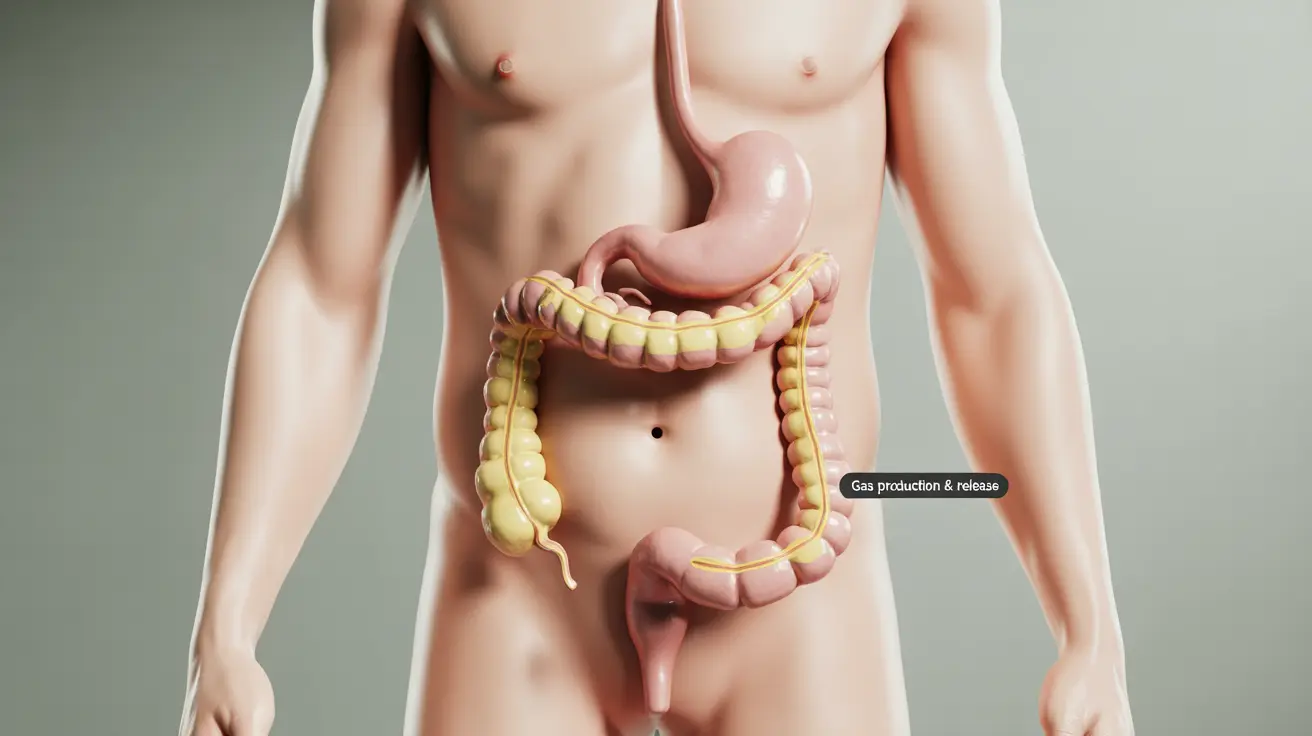Many people have wondered whether passing gas (flatulence) can contribute to weight loss or calorie burning. This question has gained particular attention due to viral social media claims suggesting specific calorie-burning numbers. Let's explore the scientific reality behind this common curiosity and understand what actually happens in our bodies when we pass gas.
Understanding Flatulence and Energy Expenditure
Passing gas is a normal bodily function that occurs when our digestive system breaks down food and releases various gases. While the act itself involves some muscle movement, particularly in the intestines and anal sphincter, the energy expenditure is minimal.
The Reality of Calorie Burning During Flatulence
The actual muscle engagement during the passing of gas is extremely minimal, involving primarily involuntary muscle contractions. These small movements burn far fewer calories than everyday activities like walking or even standing. The energy expenditure is so minimal that it cannot be meaningfully measured or considered a form of exercise.
The Origin of the 67-Calorie Myth
A widespread internet claim suggests that each instance of passing gas burns 67 calories. This misinformation appears to have originated from social media posts and unreliable sources, with no scientific backing. The number seems to have been arbitrarily chosen and has since been perpetuated through various online platforms.
Understanding Gas Production and Digestion
Gas production in our digestive system is primarily related to:
- The types of food we consume
- How quickly we eat
- The presence of certain digestive conditions
- The composition of our gut bacteria
Common Causes of Increased Gas Production
Several factors can lead to increased gas production:
- Consumption of fiber-rich foods
- Eating dairy products (especially for lactose-intolerant individuals)
- Consuming carbonated beverages
- Eating too quickly and swallowing air
- Certain medical conditions affecting digestion
The Sensation of Relief: Why We Feel Lighter
While passing gas doesn't burn a meaningful number of calories, it can make us feel lighter and less bloated. This sensation comes from the release of built-up pressure in the digestive system, not from any significant caloric expenditure or weight loss.
Safe and Healthy Approaches to Gas Management
Instead of focusing on potential calorie burning, it's more beneficial to understand how to manage gas production naturally:
- Eat slowly and chew thoroughly
- Identify and moderate consumption of gas-producing foods
- Stay hydrated
- Maintain regular physical activity
- Practice good posture while eating
Frequently Asked Questions
Does farting actually burn any calories or help with weight loss?
While the act of passing gas does involve some muscle movement, the calorie burn is negligible and does not contribute meaningfully to weight loss. Any claims about significant calorie burning through flatulence are unfounded.
Why do people believe farting burns 67 calories when there is no scientific evidence for it?
This misconception originated from unverified social media posts and internet myths. The specific number (67 calories) has no scientific basis and appears to have been randomly created and spread through various online platforms.
What causes increased farting and can it be related to specific foods or health conditions?
Increased gas production can be caused by various factors including certain foods (beans, dairy, high-fiber foods), eating habits (eating too quickly), digestive conditions (IBS, celiac disease), and the natural composition of gut bacteria.
Why do I feel lighter or less bloated after passing gas if it doesn't burn calories?
The feeling of lightness comes from releasing trapped gas and reducing pressure in the digestive system. This relief is physical but doesn't indicate actual weight loss or calorie burning.
Can straining to pass gas burn more calories, and is it safe to do so?
Straining to pass gas is not recommended as it can lead to digestive discomfort and potentially harmful complications. Any minimal increase in calorie burning from straining would be insignificant and not worth the potential health risks.




